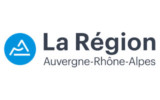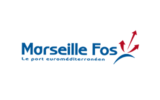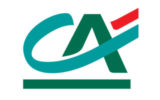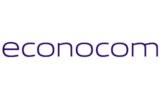Air France chooses APL to design its data center with very high-level energy efficiency and continuity of service
Started in September 2014, the project to renovate one of its data processing centers received financial support from the French Environment and Energy Management Agency (ADEME) due to its environmental qualities: target PUE below 2, and heat recovery system for heating 8500 m² of office space.
Ivry-sur-Seine, October 12, 2016 – APL, a data center specialist, is pleased to announce that it has been chosen by Air France to manage the project to renovate and streamline one of its data centers, with a surface area of 1000 m2. The main objectives for the project are to improve continuity of service (upgrade to TIER IV), energy performance (target PUE below 2) and to reduce overall running costs.
A strategic data processing center for the Air France – KLM group
In this Air France data processing center, created in 1977, some 800 people work on activities to develop and produce strategic applications for the airline (management and registration of passengers and luggage, airport displays, freight management, etc.).
Despite the adjustments made over the years and the regular replacement of IT and technical components (generating units, wiring, racks, UPS, etc.), a complete renovation proved essential after 40 years of operation. In parallel, as part of its CSR procedures, Air France is ISO 14001 certified, and is aiming to reduce its electric consumption by 2% per year over 10 years, an improvement in the energy performance which was not possible with the design of the old IT rooms.
With the miniaturization and virtualization of technologies freeing up 1000 m2 of room space out of the 3000 available on the site, the company therefore decided in 2012 to design brand new rooms. A few months later it organized a call for bids for the project management of the technical (VDI pre-wiring, fire protection, IT rack installation, etc.) and energy (power supply and cooling systems) aspects.
“We chose to define the main objectives: ability to manage the project for design and production of all technical and energy batches, upgradability to TIER IV, target PUE below 2, reduction in running costs, guarantee of continuity of service throughout construction, etc. But we left the engineering departments plenty of room for maneuver on the solutions they could provide,” states Bertrand Dollet, deputy head of the center and data center manager.
An ambitious project in energy and technical terms
Following the call for bids phase, it was the project presented by APL that was chosen by Air France, in 2014. Then came the design phase: the 1000 m² of computer rooms will initially consume 350 kW for the IT equipment and will have a High-Quality electrical capacity of 800 kW, with 1 cold MW for cooling. The backed up technical equipment will allow the site to be upgraded to TIER IV.
“For the energy component, APL engineers studied feasibility and offered us a comparison of the possible technical cooling solutions (free cooling, free chilling, etc.), broken down into investment costs and running costs. We opted for a refrigerated unit with heat recovery to heat 8500 m² of office space,” explains Bertrand Dollet.
The PUE, which was 2.9 before the server rooms were renovated and developed, will come down to below 2 at target load.
Energy performance: a subsidy from the ADEME
A PUE coefficient which does not take into account the heat recovery system for premises in the service sector, the return on investment of which was estimated at just 4 years, nor the stopping of the gas boiler, now obsolete, represents an energy saving estimated at approximately €500,000 over 10 years. Air France’s investments to reduce the environmental impact of its data center were the subject of a case file presented to the ADEME, which granted the airline a subsidy of €120,000.
Now that the renovation project has entered its final year, Bertrand Dollet concludes that, “we are fully satisfied with the way in which APL has conducted the project: studies, consultation and choice of different companies, management of construction and strict monitoring of the program. There have been no major delays. The new rooms were delivered in July 2016. We are now giving it a year to gradually transfer over the IT equipment.”
After delivery, APL will proceed to transfer skills and handover the technical documentation required to operate the site. The effective reduction in the PUE will be monitored, in close collaboration with the center’s personnel.























